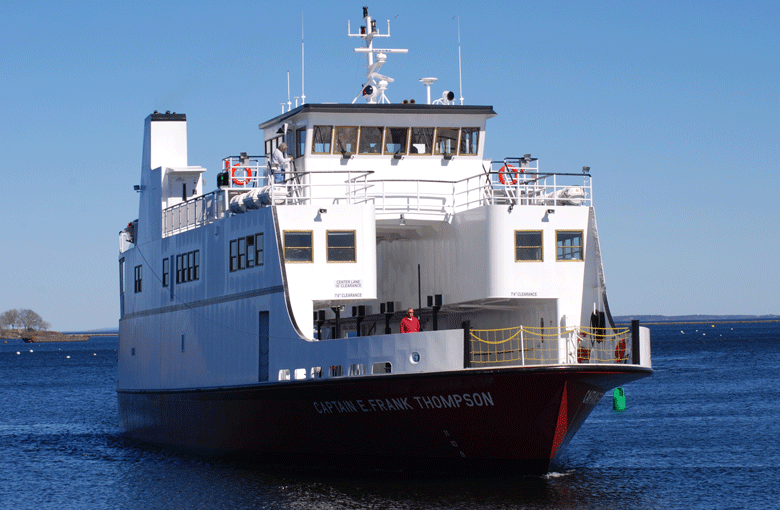Maine plans to spend $1.8 billion on its state roads and bridges over the next three years, and so the Maine State Ferry Service’s annual operating budget of $12.5 million might be seen as a pittance. But for people living on the six islands served by the state ferry, that spending is of great interest. Especially since half of it should come from ferry fares and fees.
Should come from fares and fees, but the mandated 50/50 funding split between fares and the state highway fund had not been achieved in some recent years, and the highway fund picked up the slack.
The state Department of Transportation, which includes the ferry service, was responsive to complaints from islanders four years ago following a dramatic reconfiguration of fares. A revised fare schedule has mostly been accepted by islanders.
But staff at the Island Institute, publisher of The Working Waterfront, believe a comprehensive reconsideration of the service, with an eye to its long-term plans for boats and operational costs, is needed. The Institute hosted a May 25 webinar titled, “The Future of the Maine State Ferry Service.”
“There’s only one way fares can go, and that’s up.”
—Nick Battista
Lisa Millette, a community development officer with the Institute, said the legislature’s transportation committee in March of last year directed DOT to review its operating costs.
Nick Battista, the Institute’s policy officer, said the outlook for costs was not good.
“There’s only one way fares can go, and that’s up,” he said.
The service, which runs ferries to Frenchboro, Swan’s Island, Islesboro, North Haven, Vinalhaven, and Matinicus has favored building larger boats to replace aging vessels, which in turn need larger crews and consume more diesel fuel, Battista said.
“Our goal is not only to look at operating costs,” he said, “but what the users need. It’s the right moment in DOT,” he concluded, arguing that the department is willing to take a fresh look at how it provides service.
Rather than asking how many cars a new vessel can carry and where the passenger elevators will be installed, the service should instead think about how to best serve islanders, he said.
“It’s got to work for you guys,” Battista said, addressing islanders attending the Zoom meeting, “and it’s got to meet your needs now and into the future.”
As part of that effort, the Institute has created a survey on ferry needs for islands, available at: www.surveymonkey.com/r/maineferries.
Tony Chatwin, Island Institute president, said he and staff have met with DOT Commissioner Bruce Van Note to express the organization’s desire to work with the department and islanders “to find lasting solutions.”
As part of its effort, the Institute had contracted with the consulting engineering firm KPFF. The firm’s Kelly Lesoing said the project was in its early phases, and still gathering information.
“It’s a complicated piece of information gathering,” she said, because each island has its own characteristics and needs.
Among the next steps are reviewing different service scenarios and estimating costs for each. Lesoing noted that her firm had done work in the Puget Sound on ferry service there.
“We’re hoping to look for things that enhance the service,” she said.
In recent years, islanders have had conflicts with ferry service managers over the rate hike, but also other issues such as restrictions on sending medical blood samples to the mainland for testing, Coast Guard rules that mandate people not run their car engines during transport, and restrictions when propane trucks are aboard the vessels.
The service seems to have tried to solve one problem at a time.
“Seeing issue after issue come up and impact islanders,” Battista said, “it’s been fire drill after fire drill. This is an opportunity to look at this system as a whole.”
For islanders, there’s a lot at stake, said Swan’s Island’s Donna Wiegle, who works at the medical center there (and who serves on the Institute’s board of trustees).
“Without transportation to and from the islands, we can’t support a year-round community,” she said.





